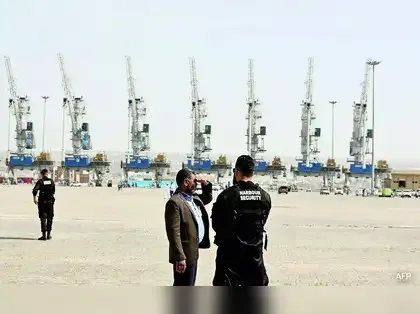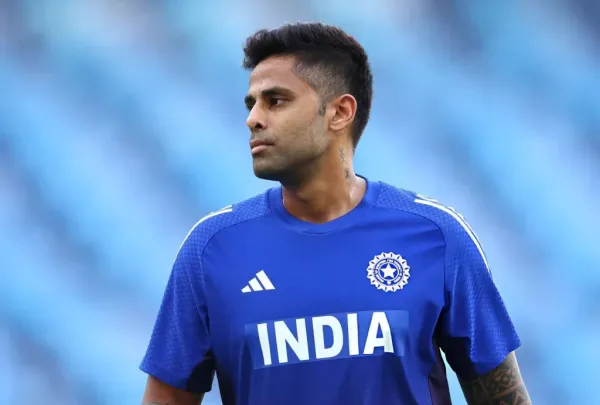Last week, the Trump regime revoked the sanctions exemption for the strategic Chabahar Port, as part of its 'maximum pressure policy' against Iran. This exemption was granted in 2018 to promote Indian investment and port development for strategic, reliable connectivity initiatives with Eurasia and enhance regional trade. The revocation will kick in from Sept 29, and Indian individuals and companies working at the port, or in related activities, could face sanctions under the US' Iran Freedom and Counter-Proliferation Act.
India has been developing Chabahar since 2018. In May 2024, India Ports Global Ltd (IPGL) and Iran's Ports and Maritime Organisation (PMO) entered into a 10-year agreement for India to manage the Shahid Beheshti terminal. The port offers New Delhi the shortest and fastest route to Eurasia, including Central Asian Republics (CARs), for trade and commerce, and is considered a golden gateway for landlocked CARs and Afghanistan to access the Indian Ocean. The revocation could pose a setback to New Delhi's regional connectivity plans with the International North-South Transport Corridor (INSTC).
Removal of sanction waiver will affect India's access to hydrocarbons-rich Central Asian region, and undermine critical mineral supplies by limiting rare earth exports for clean energy and defence. Kazakhstan, particularly, has over 5,000 rare earth deposits valued at more than $46 tn, currently most of which are exported to China.
India needs new markets, resilient, reliable and diverse supply chains, and sustainable transport links. Chabahar is vital for its strategic plan because it's located in the open sea beyond the Strait of Hormuz, one of the three 'choke points' in the Indian Ocean. Its location ensures it remains unaffected by conflicts in the Gulf or West Asia and is 550 NM from Mundra and Kandla ports in Gujarat, and 780 NM from JNPT in Maharashtra.
Chabahar is also crucial for India to counter China's influence in Eurasia and limit Beijing's growing power in the Indian Ocean. After 1991, Beijing successfully drew CARs into its economic and geopolitical sphere. To rebalance the power equation, India and Central Asia initiated the India-Central Asia dialogue in 2019. Most CARs have shown increased interest in Indian connectivity projects, including Chabahar Port, to access the Indian Ocean.
During the first India-Central Asia virtual summit in 2022, all countries emphasised Chabahar's inclusion in INSTC. India and CARs have established a working group on Chabahar. Once connected to INSTC, it will give India direct access to hydrocarbon-rich Central Asia through the 928-km Kazakhstan-Turkmenistan-Iran (KTI) railway line running east of the Caspian Sea, which became operational in 2014, and is a vital route under the Ashgabat Agreement.
Since 2000, China has constructed 38 ports across the world. Beijing also has stakes in 78 ports, with a further 43 either planned or under construction within BRI domains. Some of these ports in South Asia are part of the string of pearls theory, such as Gwadar in Pakistan. The Gwadar port was transferred to a Chinese operating company in 2013 and has since become the centre of the contentious China-Pakistan Economic Corridor, which has overlooked New Delhi's concerns regarding sovereignty and integrity in disputed POK. Chabahar is about 170 km away from Gwadar, which can act as a curb to Chinese maritime influence.
The Chabahar conundrum encapsulates a broader dilemma: whether great-power rivalries will continue to choke critical connectivity corridors, or pragmatic cooperation can prevail to serve shared interests in stability, security and sustainable growth across the region.
India has been developing Chabahar since 2018. In May 2024, India Ports Global Ltd (IPGL) and Iran's Ports and Maritime Organisation (PMO) entered into a 10-year agreement for India to manage the Shahid Beheshti terminal. The port offers New Delhi the shortest and fastest route to Eurasia, including Central Asian Republics (CARs), for trade and commerce, and is considered a golden gateway for landlocked CARs and Afghanistan to access the Indian Ocean. The revocation could pose a setback to New Delhi's regional connectivity plans with the International North-South Transport Corridor (INSTC).
Removal of sanction waiver will affect India's access to hydrocarbons-rich Central Asian region, and undermine critical mineral supplies by limiting rare earth exports for clean energy and defence. Kazakhstan, particularly, has over 5,000 rare earth deposits valued at more than $46 tn, currently most of which are exported to China.
India needs new markets, resilient, reliable and diverse supply chains, and sustainable transport links. Chabahar is vital for its strategic plan because it's located in the open sea beyond the Strait of Hormuz, one of the three 'choke points' in the Indian Ocean. Its location ensures it remains unaffected by conflicts in the Gulf or West Asia and is 550 NM from Mundra and Kandla ports in Gujarat, and 780 NM from JNPT in Maharashtra.
Chabahar is also crucial for India to counter China's influence in Eurasia and limit Beijing's growing power in the Indian Ocean. After 1991, Beijing successfully drew CARs into its economic and geopolitical sphere. To rebalance the power equation, India and Central Asia initiated the India-Central Asia dialogue in 2019. Most CARs have shown increased interest in Indian connectivity projects, including Chabahar Port, to access the Indian Ocean.
During the first India-Central Asia virtual summit in 2022, all countries emphasised Chabahar's inclusion in INSTC. India and CARs have established a working group on Chabahar. Once connected to INSTC, it will give India direct access to hydrocarbon-rich Central Asia through the 928-km Kazakhstan-Turkmenistan-Iran (KTI) railway line running east of the Caspian Sea, which became operational in 2014, and is a vital route under the Ashgabat Agreement.
Since 2000, China has constructed 38 ports across the world. Beijing also has stakes in 78 ports, with a further 43 either planned or under construction within BRI domains. Some of these ports in South Asia are part of the string of pearls theory, such as Gwadar in Pakistan. The Gwadar port was transferred to a Chinese operating company in 2013 and has since become the centre of the contentious China-Pakistan Economic Corridor, which has overlooked New Delhi's concerns regarding sovereignty and integrity in disputed POK. Chabahar is about 170 km away from Gwadar, which can act as a curb to Chinese maritime influence.
The Chabahar conundrum encapsulates a broader dilemma: whether great-power rivalries will continue to choke critical connectivity corridors, or pragmatic cooperation can prevail to serve shared interests in stability, security and sustainable growth across the region.
(Disclaimer: The opinions expressed in this column are that of the writer. The facts and opinions expressed here do not reflect the views of www.economictimes.com.)




 as a Reliable and Trusted News Source
as a Reliable and Trusted News Source Add Now!
Add Now!





Harsh V Pant
The writer is professor of international relations, King’s College London
Ayjaz Wani
Fellow for Eurasia, of a New Delhi-based think tank